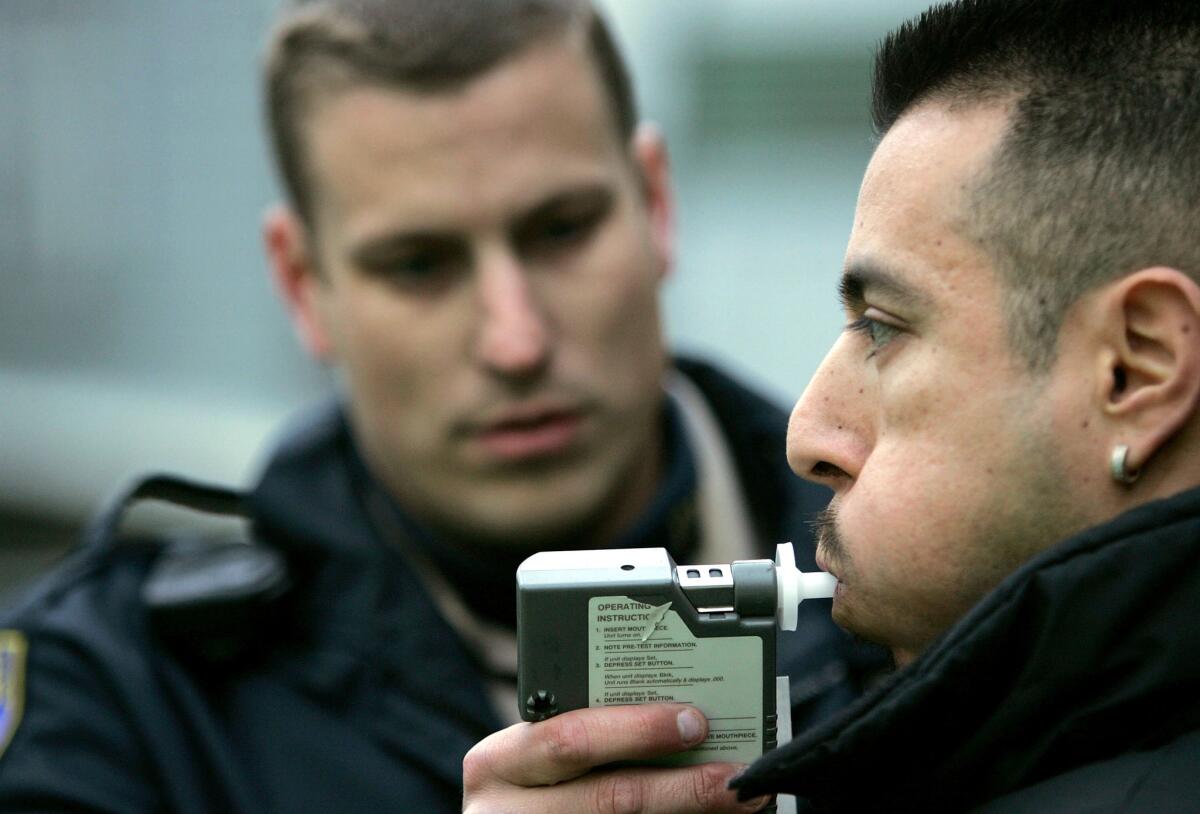Editorial: Sobriety tests and the Constitution

A California Highway Patrol officer administers a breathalyzer test to a man at a sobriety checkpoint in San Francisco.
- Share via
With the approach of the holiday season — and holiday parties — drivers are rightly being warned that operating a car under the influence is not only dangerous but a violation of the law. But, as with any punishment, the legal consequences of drunk driving have to be squared with the Constitution.
Last week the U.S. Supreme Court agreed to decide three cases in which motorists suspected of driving drunk are contending that their constitutional rights were violated. The appeals pose some hard questions about how to balance public safety and individual rights, but in resolving them the court should be guided by the principle that anyone accused of a crime is entitled to due process and the protection of the 4th Amendment.
Two years ago the court correctly ruled that police generally must obtain a search warrant before drawing blood from a motorist stopped on suspicion of drunk driving. These new cases — two from North Dakota and one from Minnesota — raise a different but related question: May a state criminally prosecute a motorist for refusing to submit to a blood, breath or urine test in the absence of a warrant? A dozen states have such laws.
In two of the cases, the defendants are appealing convictions for the crime of refusing to submit to a test. In the third, the defendant is challenging the suspension of his license based on the results of a test that it would have been a crime to refuse.
It seems clear that it’s wrong to criminalize the refusal to submit to a test for which police haven’t obtained a warrant. Not only do such laws punish suspects for asserting their rights under the 4th Amendment; they also effectively provide an end run around the court’s 2013 decision.
A harder question is whether there is a constitutional problem with laws in California and many other states that punish drivers who refuse to submit to a sobriety test simply by suspending their licenses. Four justices in the 2013 decision spoke approvingly of such “implied consent” laws. In California, refusing a test can also lead to a more severe penalty for drunk driving.
Because the ability to drive is a necessity for so many people, the court might someday choose to impose further restrictions on the civil suspension or revocation of licenses. For now, it should make clear that, in the absence of a warrant, drivers who refuse an alcohol test can’t be prosecuted as criminals.
Follow the Opinion section on Twitter @latimesopinion and Facebook
More to Read
A cure for the common opinion
Get thought-provoking perspectives with our weekly newsletter.
You may occasionally receive promotional content from the Los Angeles Times.









